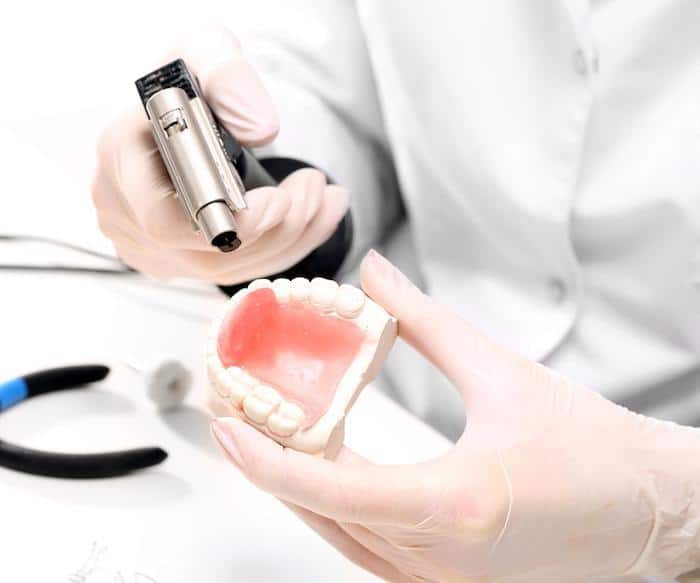While dentures have undergone some advancements over the years, they still take some getting used to. Here are some of our dentists’ best tips for acclimating to your new dentures.
Breaking in your dentures
If you don’t wear them long enough, you won’t acclimate to them.
However, if you wear them too long, thinking it will speed up the process, think again. Too much, too fast, can cause discomfort and sores. Follow our dentists’ instructions, and you’ll quickly become more comfortable with your new pearly whites.
Practice eating and speaking
Your dentures will feel a little foreign to you at first, so take some time to get to know them. Start by eating soft foods that don’t cause too much stress on your new teeth. Stay away from hard and sticky foods if possible. And definitely, no gum chewing.
The best advice is to practice this at home before performing in front of friends and family. Try various foods with different textures, and read or speak out loud while you’re alone to get an idea of how your dentures respond. It won’t take long before you learn the little adjustments that will soon become second nature to you.
Practice good oral hygiene
Just because they aren’t real teeth doesn’t mean your dentures don’t need the same care you give your natural ones. Of course, there are few differences. With dentures, you need to:
- Remove them nightly to soak in a special cleaning solution
- Be careful not to scrub them too vigorously
- Check your mouth and gums for signs of irritation and infection
- Clean your gums
- See your dentist regularly
Know the signs of infection and other problems
Every new denture wearer goes through an adjustment period, but if you’ve had your dentures for a few months and you still have sore spots on your gums or excessive slippage, come into the office so our dentists can make appropriate adjustments.
If you notice any of the following symptoms, it might indicate an infection, and means that you need to see our dentists right away:
- Redness in your gums
- Sores
- Bleeding or other discharge
- Cracks in the corners of your mouth
- Red bumps on the roof of your mouth
All in all, dentures have come a long way and are still a great choice when you need a solution to missing teeth. When you’re ready to learn more about the new generation of dentures, give the office a call at (669) 205-1303 to schedule a consultation. You can also send us a message online.





